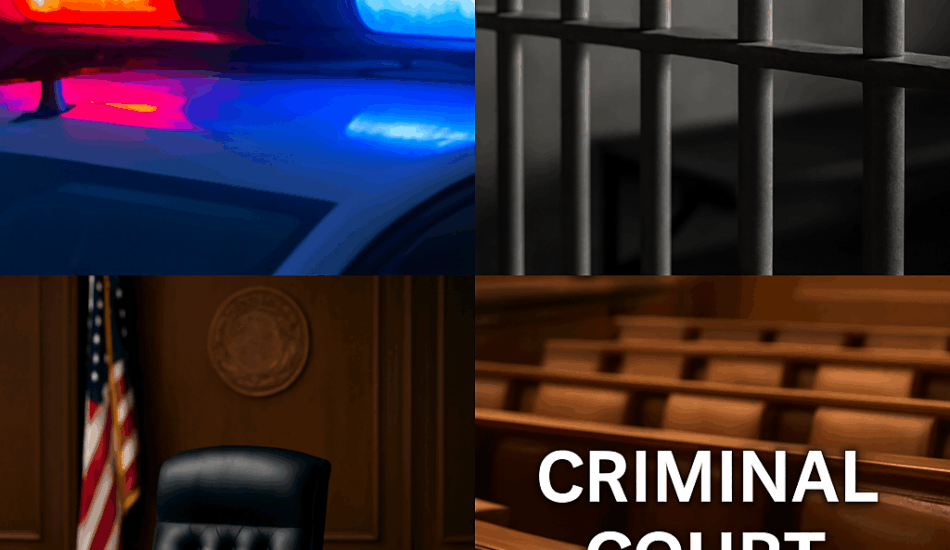Understanding the Criminal Court Process in Hillsborough County

Being arrested and facing criminal charges in Hillsborough County is overwhelming. However, understanding the court process can help you make better decisions and avoid critical mistakes. At The Brancato Law Firm, P.A., we guide our clients through each step with the goal of achieving the strongest possible outcome.
Here is a straightforward overview of how criminal cases typically move through the Hillsborough County court system.
1. Arrest and Booking
If law enforcement believes there is probable cause that a crime has been committed, they can make an arrest. After the arrest, you are typically booked at the Orient Road Jail in Tampa. This process includes fingerprinting, photographing, and gathering personal information.
2. First Appearance and Bond Hearing
Florida law requires that a person arrested without a warrant must appear before a judge within 24 hours. At this first appearance, the judge will:
-
Review the charges
-
Determine whether probable cause exists
-
Set bail or other conditions of release
Having a criminal defense lawyer present at this stage can help secure lower bond amounts or argue for non-monetary release options, such as supervised release or recognizance release.
3. Formal Charges
After arrest, the State Attorney’s Office in Hillsborough County reviews the evidence and decides whether to file formal charges. This step is known as filing the “Information.” In some cases, charges may be reduced, dropped, or changed based on the evidence available.
Early intervention by a defense attorney can sometimes persuade prosecutors not to file charges at all, especially when exculpatory evidence exists or the evidence is weak.
4. Arraignment
If formal charges are filed, the next step is the arraignment. At the arraignment:
-
The defendant is formally advised of the charges
-
A plea of guilty, not guilty, or no contest is entered
-
Future court dates are scheduled
In many cases, your attorney can handle the arraignment on your behalf without the need for you to appear in person.
5. Discovery and Pretrial Motions
During discovery, both sides exchange evidence, including police reports, witness statements, and expert reports.
Pretrial motions are critical during this phase and may include:
-
Motions to suppress evidence
-
Motions to dismiss
-
Motions to exclude prejudicial information
At The Brancato Law Firm, we aggressively challenge the government’s evidence whenever possible, seeking suppression or dismissal wherever appropriate.
6. Disposition Dates (Dispo Dates)
In Hillsborough County, many judges use Disposition Dates, commonly referred to as Dispo Dates, as an additional checkpoint in the life of a criminal case.
A Dispo Date serves as a status hearing where the judge asks both the prosecution and defense about the current status of the case. Topics typically include:
-
Whether discovery has been completed
-
Whether the case is ready to be set for a plea, pretrial conference, or trial
-
Whether there are pending motions or unresolved legal issues
Some judges routinely schedule Dispo Dates and use them to manage their dockets efficiently. Other judges may prefer to move cases directly to pretrial or trial settings without a formal Dispo checkpoint.
If your case is assigned to a judge who uses Dispo Dates, it is important to treat them seriously. These dates provide an opportunity to advocate for dismissals, negotiate resolutions, or formally request necessary continuances.
7. Pretrial Conferences
Pretrial conferences are scheduled hearings where the defense, prosecution, and judge discuss the status of the case before trial. They are used to:
-
Address pending discovery issues
-
Hear pending motions
-
Finalize plea negotiations
-
Set a firm trial date if necessary
Experienced attorneys use pretrial conferences to push for strategic advantages, including favorable plea offers or dismissal opportunities.
8. Trial
If the case does not resolve through a plea agreement or dismissal, it will proceed to trial. You have the right to:
-
A jury trial (for most felony and misdemeanor charges)
-
Confront and cross-examine witnesses
-
Present evidence and testimony
-
Remain silent without your silence being used against you
The prosecution must prove every element of the charge beyond a reasonable doubt. At The Brancato Law Firm, we prepare every case as if it will go to trial, ensuring that we are ready to defend you when it matters most.
9. Sentencing
If you are found guilty or enter a plea, the case moves to sentencing. Judges consider a range of factors, including:
-
Florida’s sentencing guidelines
-
The severity of the offense
-
Any prior criminal history
-
Mitigating circumstances
An experienced defense lawyer can advocate for reduced penalties, probation, diversion programs, or other sentencing alternatives.
How Early Intervention Can Improve Your Chances
The sooner a skilled criminal defense attorney becomes involved in your case, the more options you have. Early representation can:
-
Influence the State’s filing decisions
-
Push for lower bonds
-
Identify and attack weaknesses in the prosecution’s case
-
Preserve favorable evidence
At The Brancato Law Firm, P.A., we work quickly and aggressively from day one to protect your rights and position your case for the best possible result.
Conclusion: Protect Your Future With Experienced Representation
The criminal court process in Hillsborough County can be complicated and intimidating. Every stage of the case presents opportunities — and risks — that can affect the outcome.
If you or someone you love has been arrested in Tampa, Brandon, Ybor City, or anywhere in Hillsborough County, contact The Brancato Law Firm, P.A. today. We are ready to defend your rights, protect your future, and fight for the best possible outcome.
Call The Brancato Law Firm at (813) 592-8981 for a confidential consultation.
Serving Tampa, Ybor City, South Tampa, Brandon, and all of Hillsborough County.



